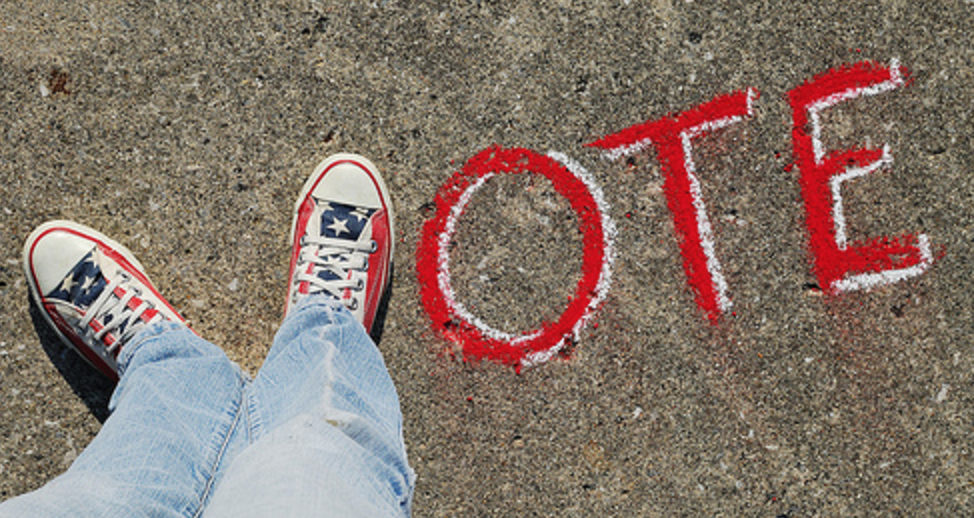
By Mark Schaefer
It is high political season in America and I could not help but observe how technology is changing the landscape in unexpected, and permanent ways. The internet and the availability of piles of data on everyone and everything are transforming the democratic process, just as they are upending many industries.
Technology’s impact on politics is a huge subject but I have had a few observations that I thought would be timely to publish to prompt a discussion with you.
Who is the dirtiest politician ever?
Much has been made about the dirty politics on both the sides of the American campaign. The rancor has been fueled by secret tapes, hateful tweets, and files leaked by … who knows?
Is Hillary Clinton the dirtiest politician ever, as her opponent claims? Well, American politics has been filled with some pretty notorious cads. Over the years I’ve devoured Robert Caro’s voluminous set of books about The Years of Lyndon Johnson. Johnson was pretty much a political monster. The difference is, we didn’t have social media documenting every foul-mouthed rant. We didn’t have Wikileaks sharing the details of embarrassing backroom meetings. We didn’t have smartphones in every shadow.
National politics works through secret leverage, compromise, favors to supporters, and “pork.” The only difference is, today we have technology that shines a light on everything. This is both good and bad. Sausage tastes good. I don’t necessarily want to watch how it’s made.
Politicians today must assume there is always someone with a smartphone, camera, microphone or other recording device capturing their actions to share with the world. This constant monitoring enables more transparency, but it also reduces political coverage to paparazzi-style reporting.
Politics is dirty. It has always been dirty. We just see it now.
Dirty tech is the new permanent. If you think this campaign was ugly, it will probably get worse from now on as leaks becomes the norm. In fact …
Tech becomes the political battleground
The Obama campaigns showed how technology and social media can be used to communicate and unite. This presidential campaign showed how technology can be used to attack and disrupt.
Going forward, I’m sure political parties will be investing a lot more in hackers and other means of sinister technological disruption. It makes good business sense. Using data hacks to hurt the opposition is a lot cheaper than spending on television ads. The stakes are high and people will do what it takes to win.
Perhaps political hacking will even spark a real war. At the time I am writing this there is strong evidence, but no apparent proof, that Russia is behind email leaks disrupting the American election process. U.S. government officials have publicly vowed “a proportional response” to Russia. Where will that lead?
Hackers have established themselves as the new global judge, jury … and perhaps even executioner. Can hackers hold politicians hostage? Of course they can.
An absence of truth
You would think that with so much news — all the information known to mankind in the palm of your hand! — that there is no excuse not to make a rational, informed political decision. But research shows the opposite is true. The Internet confuses the facts and supports clannish ideas.
Psychologists and other social scientists have repeatedly shown that when confronted with diverse information choices, people rarely act like rational, civic-minded citizens. Instead, we are roiled by preconceptions and biases, and we usually do what feels easiest — we gorge on information that confirms our ideas, and we shun what does not.
The Internet does not make us more enlightened and civil, it provides all the data we need to support whatever we want to think. You can find any truth you want.
The missing debate
The big issues of the presidential campaign have been the economy, immigration, health care, and climate change. What’s missing from the dialogue is the biggest threat that could profoundly impact the economy and the welfare of millions — cybersecurity.
Our government has been repeatedly hacked. Our largest companies, defense secrets, even the electrical grid, has been hacked. Here is an interactive visualization of the worst hacks (that we know of!). Pretty alarming. And every device, node, and sensor added to The Internet of Things is a new entry point for the bad guys. Shouldn’t this be THE issue of the campaign?
Hillary Clinton’s website lists 41 priorities of her platform. Cybersecurity is not one of them. Donald Trump does list cybersecurity as one of his 15 priorities. The issue was brought up in the debates once, by moderator Lester Holt. Neither candidate gave a direct answer. The topic represented less than 10 minutes out of 4.5 hours of public debate.
I recently had a conversation with some of the top Internet security experts in the business. I expressed my concerns about what appears to be not “if” but “when” a major security attack on the electrical grid or air traffic control system cripples the country. I was looking for some comfort but found none.
“Oh, the situation is worse than you can imagine,” they told me … and continued to tell me war stories for the next 45 minutes that proved their point.
The fact is, day by day the Internet is becoming more vulnerable, not safer, and this is a national utility no less important to our country than roads, water, or electricity. Why isn’t this being addressed as a national security issue? I’m afraid the technology, and the complexity of the issue, is progressing far faster than Washington’s ability to understand it.
What are your thoughts on these tech + political issues?
Book link is affiliate link. Photo was marked as license free by Google.